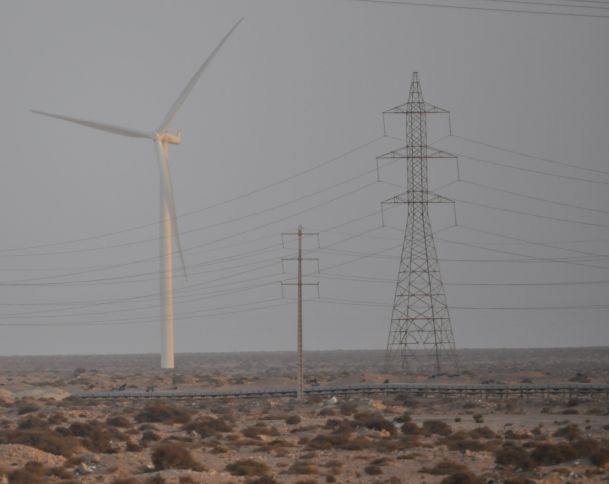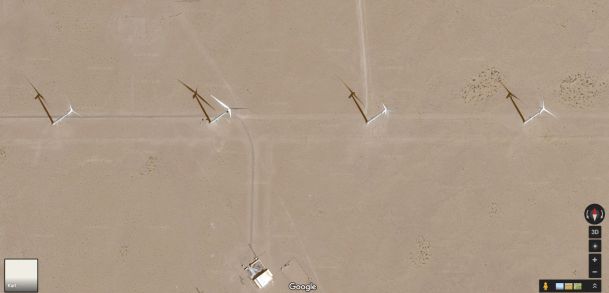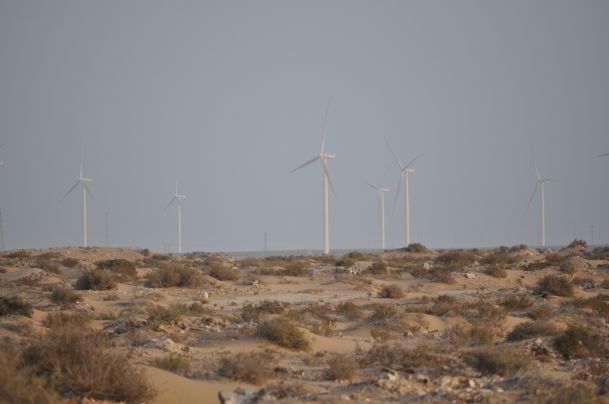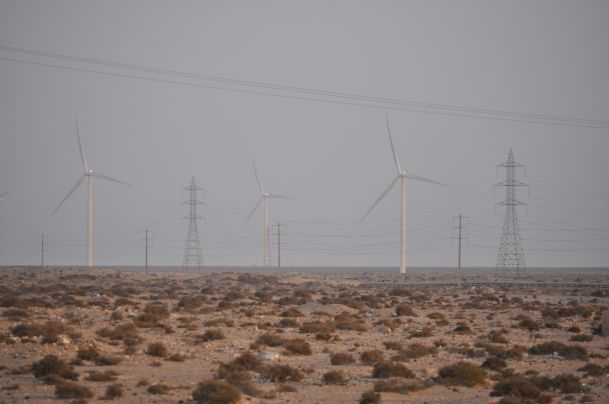
There is little renewable in the operations of the Siemens run wind park in occupied Western Sahara. See the mills that supply the Moroccan illegal mining here, in partnership with the Moroccan king.
Western Sahara Resource Watch yesterday published the report “Powering the Plunder – What Morocco and Siemens are hiding at COP22, Marrakech", documenting how the alleged "sustainable energy" projects of Morocco and the German company Siemens in fact contribute to cementing the illegal occupation of Western Sahara. The project also creates increased profits on Morocco's illegal mining in the territory it occupies.
Former UN Legal Counsel, Hans Corell, yesterday told Danish media that such an operation is in violation of international law and basic business principles.
According to OCP, the Moroccan state-owned phosphate company which plunders the territory, 95% of the required energy is provided by windmills. These were built by German company Siemens, which refuses to answer questions as to whether it has sought the consent of the people of the territory. Siemens won the tender by partnering with a company of the Moroccan king.
Try entering these coordinates right into Google, and see the windmills for yourself. 27°01'34.0"N 13°22'48.7"W
The mills are located right next to the phosphate production plant it is supplying with energy. The photographs below show even how the OCP conveyor belt that transports the rock from the depleting mine inland out to the Atlantic Ocean, cuts right through the windmill park.
Morocco militarily invaded the territory of Western Sahara in 1975, forcing half the people to flee. Severe human rights violations are being committed against people who advocate for self-determination. Over 100 UN resolutions call for the Saharawi people's right to self-determination to be respected.
Images below are free of use.





Morocco allocates land in occupied Western Sahara to green hydrogen investors
Morocco’s ambitions to become a global green hydrogen powerhouse are accelerating. Yet, Rabat is allocating land in a territory it does not legally own.
US eyes minerals in occupied Western Sahara
Seeking to position itself as a key supplier of strategic minerals for Western powers, Morocco has signed a new agreement with the United States that covers Western Sahara’s waters and the critical minerals harboured there.
TAQA-Moeve obtains land in occupied Western Sahara
Morocco’s push for green hydrogen has taken a decisive step forward - on territory it does not legally own.
EU-Morocco Statement: autonomy without self-determination, law without lawfulness
A joint statement that came out of last week’s EU-Morocco Association Council asks readers to believe in a fiction: that an undefined autonomy plan imposed by an occupying power can satisfy the right to self-determination, and that respect for international law can coexist with the systematic ignoring of the EU’s own highest court.



